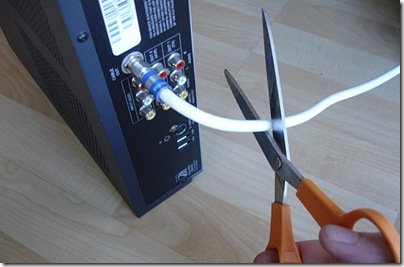Indian Government’s Internet Kill Switch – how much is it justified?
Internet is usually perceived as a virtual world, but sometimes its output is more than real. Internet has not only broken the shackles of geographical boundaries, but also revolutionized the speed of information and data sharing requirements.
With the emergence of social media’s influential domain of information exchange on the internet universe, it’s almost for saying that internet has turned into an inevitable source of information resource being effectively used by a cross section of society.
Moreover, the role of social media can not be under-stated during the recent protests in Egypt and Tunisia, powered by the Middle East’s hunger for a revolutionary change. This shows how social media played an influential role in socio-political organizations.
During such landmark revolutions, internet through social media tools was used to increase government transparency, accountability and mobilize like-minded individuals and to plan concrete action. Recently, social media has also helped victims and families to communicate and connect with each other in the aftermath of the earthquake and tsunami in Japan.
At such a time, how would you describe when the government has armed itself with the powers to switch off the cyber traffic during national emergencies? Would it go against the freedom of expression of the netizens? Or will it act in interest of the nation?
Yes, the Indian government has reserved its rights to kill (or shutdown) the internet during emergencies, or in the interest of sovereignty and integrity of India, or other security issues and public order maintenance. The Indian government has conferred such rights on itself under the provisions of the Information Technology (Amendment) Act, 2008.
Here is what Section 69A of the amended act says:
Where the Central Government or any of its officers specially authorized by it in this behalf is satisfied that it is necessary or expedient so to do, in the interest of sovereignty and integrity of India, defense of India, security of the State, friendly relations with foreign States or public order or for preventing incitement to the commission of any cognizable offence relating to above, it may subject to the provisions of sub-section (2), for reasons to be recorded in writing, by order, direct any agency of the Government or intermediary to block for access by the public or cause to be blocked for access by the public any information generated, transmitted, received, stored or hosted in any computer resource.
What I feel is such unusual powers to government serves negative causes when a country is dictated by autocratic leaders. But, for a democratic country like India, it would act as a platform to shut down internet only when there are genuine security related concerns.
So, what’s your take on such acts that confers right to the government to shutdown internet during a cyber-emergency? Should government be armed with complete powers for an internet kill switch, or should there be limits on powers that would allow shut down parts of the internet?


[…] section 69A of the Information Technology (Amendment) Act, 2008 which is also known as Government’s Internet Kill Switch, it basically gives authority to the government to remove any type of content which is […]
It is unnecessary to shutdown the overall internet connection during cyber-emergency period. Just blocking specific websites is enough.